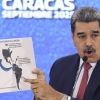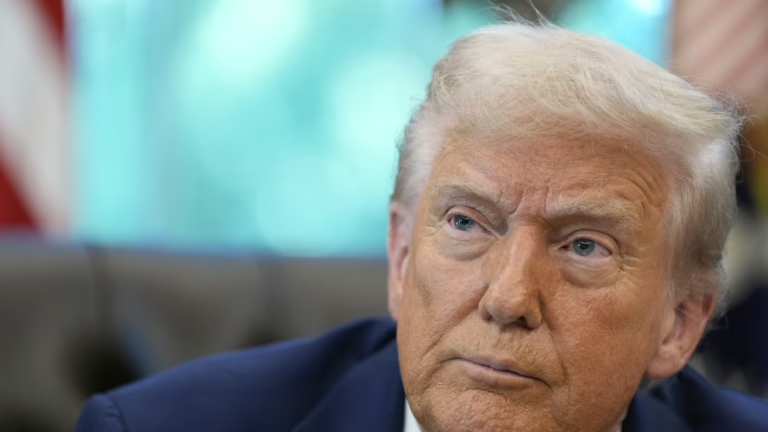President Trump addresses a reporter’s question inside the White House Oval Office on Friday
Alex Brandon/AP
hide caption
toggle caption
Alex Brandon/AP
WASHINGTON – On Friday, President Donald Trump announced that the U.S. military has executed its third lethal operation this month targeting a suspected drug trafficking vessel.
In a statement shared on social media, Trump revealed that the strike resulted in three fatalities and targeted a boat “linked to a Designated Terrorist Organization involved in narcotics trafficking within the USSOUTHCOM area of responsibility.” Specific details regarding the strike’s exact location were not disclosed.
When inquiries were directed to the Pentagon, officials redirected questions to the White House, which has yet to provide further information about the vessel’s origin.

“Intelligence confirmed that the vessel was transporting illegal narcotics and was navigating a well-known drug trafficking route destined to harm Americans,” Trump stated in his post.
Accompanying the announcement, Trump shared footage depicting a boat racing through the water before being struck by two missiles from above, culminating in a fiery explosion and sinking.
White House Communications Director Steven Cheung commented on X, “At that moment, the narcoterrorists realized their grave mistake,” alongside the video.
Earlier this week, Trump disclosed that the U.S. military had targeted another vessel allegedly smuggling drugs from Venezuela, resulting in three deaths aboard.
This followed a September 2 strike on a speedboat reportedly carrying narcotics, which led to 11 fatalities. The administration identified the vessel as operated by the Tren de Aragua gang, designated by the U.S. government earlier this year as a foreign terrorist organization.

The Trump administration defends these military actions as essential measures to disrupt the influx of narcotics into the United States.
However, the legality of these strikes has been questioned by a bipartisan group of senators and human rights organizations, who argue that deploying the military for law enforcement purposes may exceed executive authority.
Details remain unclear on how the military verified the cargo and confirmed the passengers’ alleged gang ties prior to the attacks. National security officials informed Congress that the initial vessel was fired upon multiple times after it altered course and appeared to head back toward shore.
These operations coincide with an increased U.S. naval presence in the Caribbean, signaling a significant shift in America’s approach to combating drug trafficking in the Western Hemisphere.
In Venezuela, speculation has arisen about whether these strikes are part of a broader strategy to destabilize President Nicolás Maduro’s government-a claim Maduro himself has echoed.
Following the first strike, Maduro dismissed the U.S. video released by Trump as artificially generated and argued that a boat of that size could not operate in open waters.
More recently, Maduro condemned the Trump administration, accusing it of using drug trafficking allegations as a pretext for military actions aimed at intimidation and regime change in Venezuela.

















